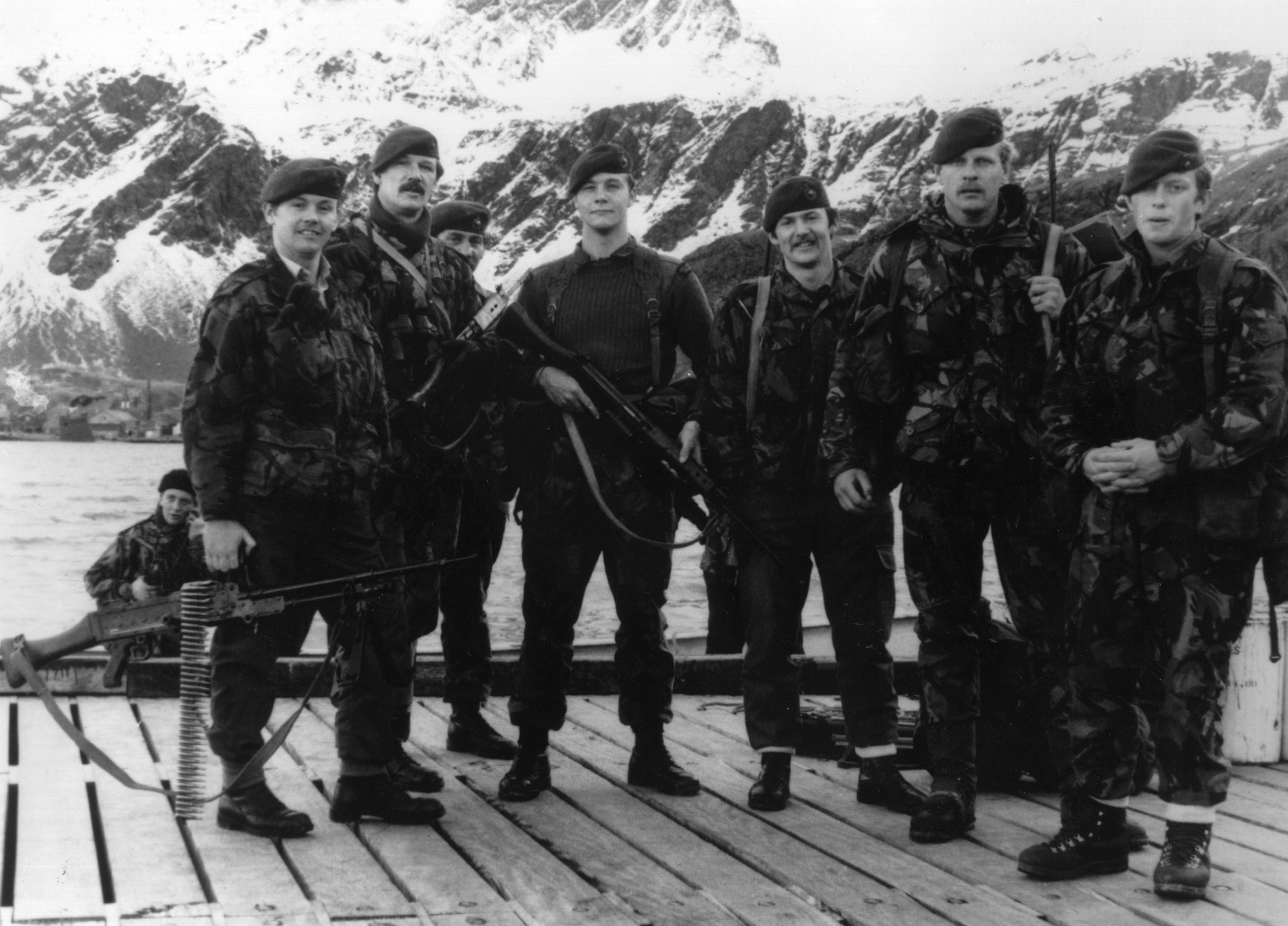How the capture of a tiny South Atlantic island triggered the Falklands war
The 1982 invasion of the Falklands had a prelude played out 800 miles away, writes Mick O’Hare, who speaks to royal marines who clashed with Argentinian forces on rain-soaked South Georgia

When, in 1915, Ernest Shackleton’s ship Endurance became trapped and then crushed in the Antarctic ice, he embarked on one of humanity’s greatest quests for survival. The following April, leaving his men in makeshift camps on Elephant Island, he and five others crossed the perilous Southern Ocean into the South Atlantic aboard what was little more than a rowing boat. Travelling an astonishing 800 miles to make landfall on the southern coast of South Georgia, they crossed the island’s treacherous mountain terrain to reach help at the Stromness whaling station. They all survived and every man on Elephant Island was rescued.
Despite its name, South Georgia is a remote 100-mile long island in the South Atlantic, nearly 1,700 miles east of the South American continent – a proverbial needle in a very wet, very cold haystack. But Shackleton got his men there. And what they found was pretty much how it looked a full 65 years later when Constantino Davidoff, an Argentine scrap-metal merchant, turned up there in December 1981.
“Penguins, wind and incessant rain,” was how Stephen Martin, commander of the British Antarctic Survey (BAS) on South Georgia at the time described it. To call it inhospitable doesn’t really do it justice. The island has had no permanent population since the last whaling station at Grytviken closed in 1965 although the BAS has summer stations at Leith Harbour and Grytviken. South Georgia has been ostensibly British since seafarer and explorer James Cook claimed the island in 1775 – it even has a British postcode SIQQ 1XX – although in 1927 Argentina made its first claim to the islands, one it repeated regularly thereafter.
Subscribe to Independent Premium to bookmark this article
Want to bookmark your favourite articles and stories to read or reference later? Start your Independent Premium subscription today.
Join our commenting forum
Join thought-provoking conversations, follow other Independent readers and see their replies